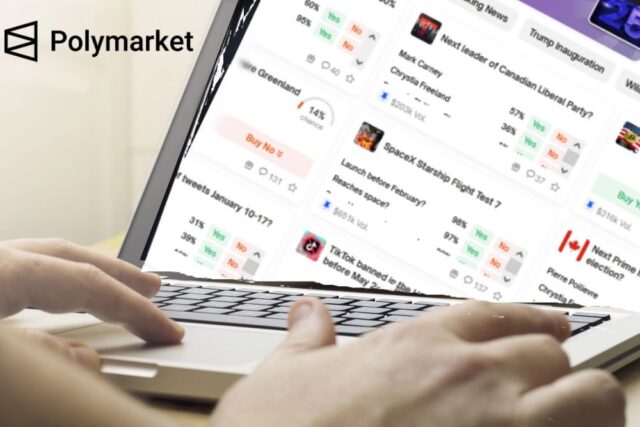Polymarket, a decentralized prediction market platform, finds itself at the epicenter of regulatory scrutiny. Authorities in the United States and Singapore take aggressive actions against its operations. These developments underscore the growing tension between innovative blockchain platforms and global regulatory frameworks aimed at ensuring compliance and consumer protection.
U.S. Regulatory Action
In the United States, the Commodity Futures Trading Commission (CFTC) has intensified its investigation into Polymarket. The agency has subpoenaed customer data from Coinbase, focusing on the platform’s alleged offering of unregistered derivatives. This is not Polymarket’s first encounter with the CFTC. In 2022, the commission fined Polymarket $1.4 million for operating without proper registration. The recent subpoena signals the regulator’s continued scrutiny of decentralized finance (DeFi) platforms potentially operating in violation of U.S. law.
Adding to Polymarket’s legal woes, the Federal Bureau of Investigation (FBI) recently conducted a search of CEO Shayne Coplan’s Manhattan residence. During the raid they seized electronic devices, further highlighting the seriousness of the investigation. While details of the allegations remain under wraps, the actions by U.S. authorities reflect a broader effort to enforce existing financial regulations in the rapidly evolving crypto landscape.
Singapore Bans Polymarket as Illegal Gambling Site
In a separate but equally significant development, Singapore’s Gambling Regulatory Authority (GRA) has blocked access to Polymarket, categorizing it as an “illegal gambling site.” Singapore’s stringent gambling laws only permit state-licensed operators. GRA warns that individuals accessing unlicensed platforms could face fines of up to SGD 10,000, imprisonment for up to six months, or both.
Singapore’s actions are part of a broader crackdown on online gambling. The decision to target Polymarket reflects the government’s concern over consumer protection and regulatory compliance. Similar moves have been observed in other jurisdictions, including Taiwan and France, which have also restricted access to the platform.
The Broader Implications
Polymarket’s predicament is emblematic of the challenges faced by decentralized platforms operating in regulatory gray areas. While blockchain-based prediction markets offer innovative ways for users to speculate on real-world events, they also blur the lines between gambling and financial products. This ambiguity has made them a focal point for regulators seeking to establish clear guidelines for emerging technologies.
The regulatory actions against Polymarket could set a precedent for other decentralized platforms. As governments worldwide grapple with the complexities of DeFi, platforms that fail to comply with local laws may find themselves facing similar scrutiny. At the same time, these developments raise questions about the balance between fostering innovation and ensuring consumer safety.
>>> Read more: How Blockchain Prediction Markets Shape the 2024 U.S. Election
The crackdown on Polymarket by the United States and Singapore highlights the growing regulatory pressure on crypto-based platforms. While these actions aim to protect consumers and maintain oversight, they also underscore the challenges of navigating a rapidly evolving digital landscape. For Polymarket and similar platforms, the path forward will likely require greater transparency, compliance, and collaboration with regulators to ensure their long-term viability in the global financial ecosystem.
Readers’ frequently asked questions
What is a decentralized prediction market like Polymarket?
A decentralized prediction market is a platform that allows users to place bets or speculate on the outcomes of real-world events, such as elections or sports results, using cryptocurrencies. Unlike traditional betting platforms, these markets are typically built on blockchain technology, which ensures transparency and removes the need for a central authority. Polymarket operates in this space, enabling users to participate in prediction markets by leveraging the benefits of decentralized finance (DeFi).
What does it mean for Polymarket to be labeled an “illegal gambling site” in Singapore?
When Singapore’s authorities classify a platform as an “illegal gambling site,” it means the platform is operating without the required licenses to provide gambling services under the country’s laws. In the case of Polymarket, the platform’s activities, which involve betting on event outcomes, are considered gambling. Since Polymarket did not secure authorization to operate within Singapore, the government has blocked access to it. Users attempting to access such platforms can face penalties, including fines and imprisonment.
Why is the U.S. Commodity Futures Trading Commission (CFTC) involved with Polymarket?
The CFTC is responsible for regulating derivatives markets in the United States. Polymarket’s operations, which involve users speculating on event outcomes, may involve financial instruments classified as derivatives under U.S. law. The CFTC requires platforms offering such products to register with the agency and comply with its rules. Polymarket’s failure to register and adhere to these regulations prompted the CFTC’s investigation and earlier fines. The recent subpoena of customer data from Coinbase suggests the regulator is continuing its efforts to enforce compliance.
What Is In It For You? Action Items You Might Want to Consider
Stay Informed About Platform Legitimacy
Before using a crypto platform like Polymarket, ensure it complies with regulatory requirements in your country. Look for licenses or regulatory certifications on the platform\u2019s website and verify its status with local financial authorities. This can help you avoid legal risks and protect your funds from potential platform shutdowns or fines.
Be Cautious with Decentralized Platforms
While decentralized platforms offer innovative financial tools, they often operate in regulatory gray areas. If you trade or participate in prediction markets, make sure you fully understand how the platform operates, including its terms of service, risk factors, and potential legal implications in your region. This awareness can help you trade responsibly and avoid unintended consequences.
Diversify Trading and Investment Strategies
Regulatory actions, like those against Polymarket, highlight the risks associated with depending too heavily on a single platform or strategy. To minimize disruption, consider diversifying your trading activities across multiple compliant platforms and incorporating various asset classes into your portfolio. This approach can safeguard your investments and reduce exposure to regulatory challenges affecting specific platforms.











[…] >>> Read more: Gambling Crackdown Hits Polymarket in U.S. and Singapore […]
[…] >>> Read more: Gambling Crackdown Hits Polymarket in U.S. and Singapore […]